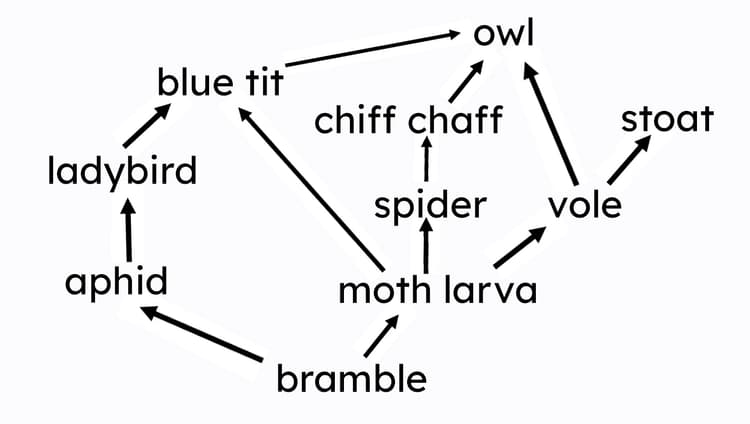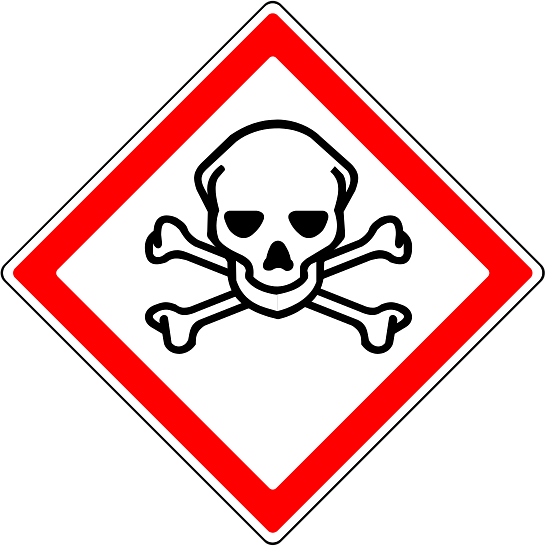Myths about teaching can hold you back
- Year 7
Bioaccumulation
I can describe how toxic materials can accumulate and affect organisms in a food chain.
- Year 7
Bioaccumulation
I can describe how toxic materials can accumulate and affect organisms in a food chain.
These resources were made for remote use during the pandemic, not classroom teaching.
Switch to our new teaching resources now - designed by teachers and leading subject experts, and tested in classrooms.
Lesson details
Key learning points
- Some toxic substances are persistent (they stay in the environment and do not break down).
- If consumed, persistent toxic substances can be passed up the food chain.
- The bioaccumulation of toxic substances can cause damage to organisms, particularly top predators.
- The use of pesticides in farming can cause bioaccumulation.
Keywords
Toxic - A toxic substance is one which is poisonous to organisms.
Bioaccumulation - An increase in the concentration of a chemical within an organism is called bioaccumulation.
Pesticide - Pesticides are chemicals that are used to control pests (organisms that compete with humans for food supplies).
Common misconception
Pupils do often not understand that pesticides can build up within a food chain.
The lesson covers examples of how pesticides can be absorbed into producers and passed along food chains as organisms eat food.
To help you plan your year 7 science lesson on: Bioaccumulation, download all teaching resources for free and adapt to suit your pupils' needs...
To help you plan your year 7 science lesson on: Bioaccumulation, download all teaching resources for free and adapt to suit your pupils' needs.
The starter quiz will activate and check your pupils' prior knowledge, with versions available both with and without answers in PDF format.
We use learning cycles to break down learning into key concepts or ideas linked to the learning outcome. Each learning cycle features explanations with checks for understanding and practice tasks with feedback. All of this is found in our slide decks, ready for you to download and edit. The practice tasks are also available as printable worksheets and some lessons have additional materials with extra material you might need for teaching the lesson.
The assessment exit quiz will test your pupils' understanding of the key learning points.
Our video is a tool for planning, showing how other teachers might teach the lesson, offering helpful tips, modelled explanations and inspiration for your own delivery in the classroom. Plus, you can set it as homework or revision for pupils and keep their learning on track by sharing an online pupil version of this lesson.
Explore more key stage 3 science lessons from the Ecosystems unit, dive into the full secondary science curriculum, or learn more about lesson planning.

Equipment
Licence
Prior knowledge starter quiz
6 Questions
Q1.Look at the woodland food web. Which of the following organisms is an apex predator?

Q2.Look at the woodland food web. Which of the following organisms is a producer?

Q3.An ecosystem includes...
Q4.Look at the food chain diagram. What things will happen if the deer die out?

Q5.Farmers use chemicals to help them produce enough food for the human population. Having enough food for the human population is called...
Q6.Chemicals which kill pests are called ...
Assessment exit quiz
6 Questions
Q1.What does the hazard symbol mean?

Q2.Match the words with their correct meanings.
a chemical which kills organisms that might eat or damage a crop
a chemical which kills plants. They are sometimes called weedkillers
a chemical which kills insects
a chemical which kills moulds
Q3.Toxic chemicals can build up in organisms in a food chain. This is known as ...
Q4.Look at the food web diagram. Which of the organisms would be killed by a herbicide?

Q5.Look at the food web diagram. How many organisms would be killed directly by an insecticide?

Q6.Look at the food chain diagram. Which of the organisms is most likely to build up toxic levels of insecticide in their bodies?



